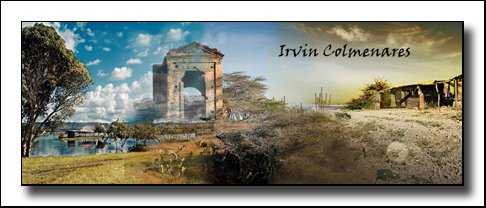
Saludos. La amiga @damarysvibra en su columna para la comunidad @holos-lotus nos deja una iniciativa muy provocativa, nos invita a reflexionar sobre el cuento que cada uno nos contamos. Les comento…
No sé si de niño sería igual. Pero sí recuerdo muy bien que al llegar a la adolescencia comencé a tener la sensación de que podía fijarme en cosas que los demás pasaban por alto.
Si, por ejemplo, alguno de mis compañeros de liceo me mostraba un dibujo yo le sugería cómo mejorarlo, le decía que debía incorporar tal o cual elemento, combinar unos colores distintos a los que había usado, y cosas por el estilo.
Las consecuencias de ese tipo de intervención, sin que nadie me las pidiera, podían ser de diferentes tipos. Algunos me agradecían que les hubiese hecho la recomendación y otros, por el contrario, se enojaban muchísimo y me dejaban saber que para ellos yo era un tipo bastante presumido.

Con el correr de los años se fue fortaleciendo esa manía de hacerle observaciones a los demás. Mientras más cosas aprendía más me convencía de que tenía la autoridad para decirle a la gente cómo “tenían” que hacer sus cosas.
Mi impertinencia en esos asuntos no tenía límites, podía opinar prácticamente de cualquier tema. Me atrevía a todo. Desde recomendar mejores rutinas de ejercicios, hasta la mejor forma de criar un muchacho.
Bastaba que en alguna conversación alguien soltara cualquier cosa que me pareciera errada o poco reflexionada para que yo, sin pensarlo dos veces, inmediatamente saltara a proponer alguna fórmula capaz de corregir lo que me parecía débil.
Claro, que ese comportamiento de cuestionador implacable, también me lo aplicaba yo mismo. Era muy difícil que hiciera algo con lo que me sintiera realmente conforme. Le veía fallas a cualquier cosa que hiciese, y pensaba que debía mejorarla. Era totalmente esclavo de la manía de perfección.
Esa forma de ver el mundo me daba algunas satisfacciones momentáneas, alimentaba cierto narcisismo porque me confirmaba que yo podía tener razón en muchas cosas. Pero en el fondo me creaba un gran desasosiego.

Con el correr del tiempo fui comprendiendo que la mayor fuente de mi infelicidad estaba precisamente en esa forma de ser, porque era un boleto seguro para construir malas relaciones con los demás.
A fin de cuentas a nadie le gusta que le estén diciendo todo el tiempo cómo mejorar lo que hace, o que le estén poniendo de manifiesto posibles debilidades. La gente necesita más bien acompañamiento y refuerzos positivos.
Cuando leí la iniciativa de Damarys no tuve ninguna duda, no tuve que pensar mucho. El asunto se mostró prístino a mis ojos. Inmediatamente supe cuál era el cuento que yo más me había echado en la vida, y que no es otro sino el del perfeccionista, el de creerse que uno sí tiene una especie de cualidad distinta que lo ubica por encima del común.
Es impresionante cómo acabamos asumiendo estos cuentos que nos vamos inventando para andar por la vida. No sé si será inevitable que sea así. Puede ser que se trate de un asunto de identidad. O quizá no sea más que una de las tantas trampas que nos tiende nuestro ego desbocado.
Pero hay varias cosas que me parecen importantes considerar. Una es tomar conciencia que estos cuentos no son nada fiables, que pueden tener mucho de falsedad, que son fuente de error y que nos pueden perturbar de una manera sustancial nuestras relaciones con los demás.
Lo otro es que si tomamos plena conciencia del cuento que nos estamos echamos tenemos la posibilidad de dejarlo hasta allí, de no contarlo más. Eso nos abriría un espacio para relacionarnos de manera más genuina y nutritiva no solo con nosotros mismos, sino también con los que están a nuestro alrededor.
Si conseguimos librarnos de todos esos cuentos seguramente que viviremos mejor. Suerte con eso…
Gracias por tu tiempo.


Greetings. The friend @damarysvibra in her column for the holos-lotus community leaves us a very provocative initiative, she invites us to reflect on the story that each of us tell ourselves. I tell you...
I don't know if I was the same as a child. But I do remember very well that when I reached adolescence I began to have the feeling that I could notice things that others overlooked.
If, for example, one of my high school classmates showed me a drawing, I would suggest how to improve it, I would tell him that he should incorporate this or that element, combine different colors than the ones he had used, and things like that.
The consequences of that kind of intervention, without anyone asking me, could be of different kinds. Some people thanked me for having made the recommendation and others, on the contrary, got very angry and let me know that for them I was a rather presumptuous guy.

As the years went by, this habit of making remarks to others grew stronger. The more I learned the more I became convinced that I had the authority to tell people how they "had" to do things.
My impertinence in these matters had no limits, I could give my opinion on practically any subject. I dared to do anything. From recommending the best exercise routines to the best way to raise a boy.
It was enough that in some conversation someone would say something that seemed to me to be wrong or not well thought out for me, without thinking twice, to immediately jump to propose some formula capable of correcting what seemed to me to be weak.
Of course, this relentless questioning behavior was also applied to me. It was very difficult for me to do something with which I really felt satisfied. I saw flaws in whatever I did, and I thought I had to improve it. I was a total slave to the perfection mania.
That way of seeing the world gave me some momentary satisfaction, it fed a certain narcissism, because it confirmed that I could be right about many things. But deep down it created a great uneasiness in me.

As time went by, I came to understand that the greatest source of my unhappiness was precisely in that way of being, because it was a sure ticket to build bad relationships with others.
After all, nobody likes to be told all the time how to improve what they do, or to be told about possible weaknesses. Rather, people need coaching and positive reinforcement.
When I read Damarys' initiative I had no doubts, I didn't have to think too much. The matter was pristine in my eyes. I immediately knew what was the story that I had told myself the most in my life, which is none other than that of the perfectionist, that of believing that one has some kind of distinct quality that places him/her above the common one.
It is impressive how we end up assuming these stories that we make up to get through life. I don't know if this is inevitable. It may be a matter of identity. Or maybe it is nothing more than one of the many traps that our runaway ego sets for us.
But there are several things that I think are important to consider. One is to be aware that these stories are not at all reliable, that they can be very false, that they are a source of error and that they can substantially disturb our relationships with others.
The other thing is that if we become fully aware of the story we are telling ourselves, we have the possibility of leaving it there, of not telling it anymore. That would open a space for us to relate in a more genuine and productive way not only with ourselves, but also with those around us.
If we manage to get rid of all those stories we will surely live better. Good luck with that...
Thanks for your time.
Translated with DeepL.com (free version).








Comunidad Be Entrepreneur
